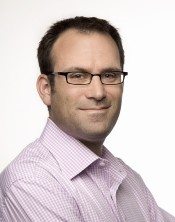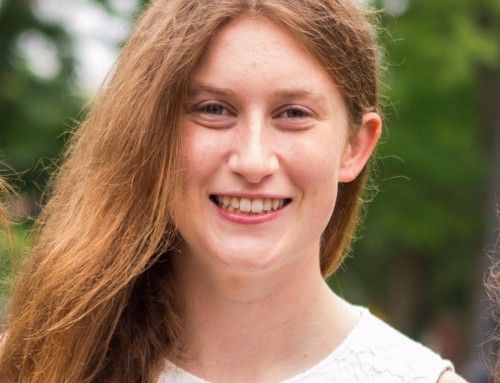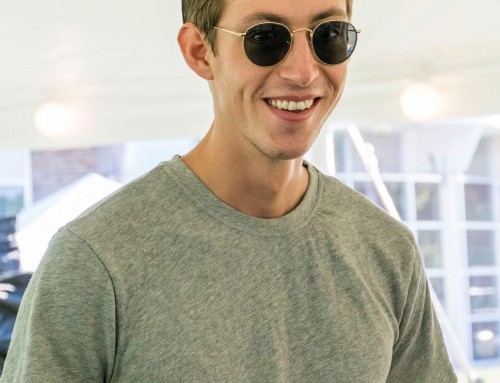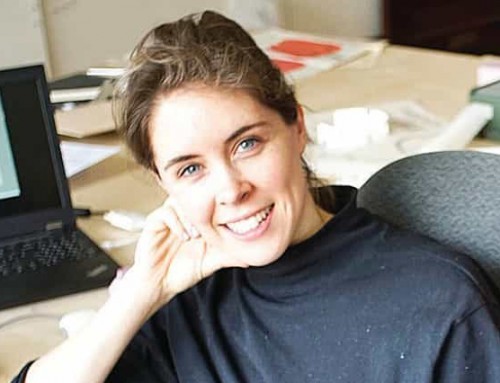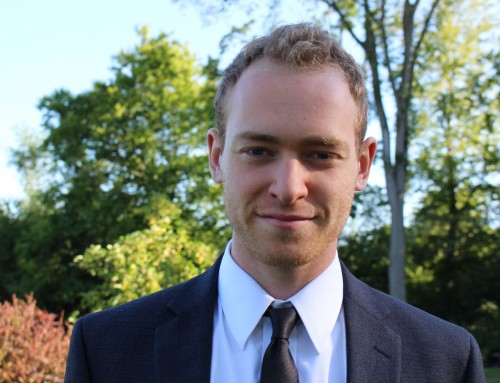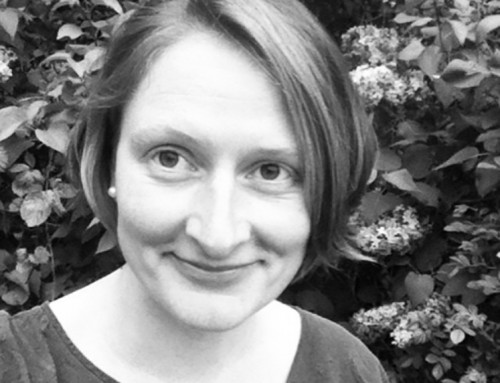Years and grades at BCD: Preschool-9th grade (1973-84)What are your fondest memories from BCD?
I spent 11 amazing years at BCD, and made friendships and learned lessons that have literally lasted a lifetime, so to fully do this question justice would require a book of its own. Among the many highlights, I remember with great fondness Tracy MacGruer – in my mind, the archetypal kindergarten teacher – who combined just the right mix of fun, guided instruction and sharp wit. Mrs. MacGruer got me and my class off to a flying start at BCD. Mme. Grad may have been diminutive in stature, but she holds an outsized presence in my learning experience. Thanks to her, I learned the rules of French grammar inside and out. In an age before widespread computer use, when good penmanship had greater value, I had the privilege of helping to transcribe Mme. Grad’s famous cahier – her notebook of rules and examples (I was considered to have good handwriting at the time, something that will come as a surprise to anyone who has seen me hand-write anything lately). Mrs. Fawcett’s Latin class was similarly influential for me, from the basics of grammar to Caesar’s Gallic wars to the poems of Catullus, the excellent grounding I got in both Latin and French helped me learn other Romance languages far more easily in high school and college. Mr. Fawcett’s 9th grade English class is still the best literature course I’ve ever had the privilege of taking. Finally, although I myself was never a particularly accomplished athlete, I have great memories of our soccer and baseball teams and the bus trips we took to play neighboring schools. We may not have always won, but regardless of the outcome, we had a lot of fun.
Where did you go once you left BCD?
For 10th grade, I went to Pittsfield High School (PHS), followed by a year abroad in Milan, Italy as an exchange student, where I lived with an Italian family and attended the Liceo Scientifico Elio Vittorini. I returned to PHS for my final year of high school. From there, I attended Columbia University in New York, where I majored in U.S. History.
Along the way, I cultivated an interest in Latin America, and that led me to spend the spring semester of my junior year in Lima, Peru, at the Universidad Católica. I traveled widely throughout Peru during the six months I spent there, despite a raging civil war that effectively closed off large swaths of the country. After my semester abroad ended, I went to Macchu Picchu (the highlight of my trip and still the most amazing place I’ve ever visited) followed by a five-week-long trip by train and bus through Bolivia, Argentina and Chile.
In the year before starting my doctoral program in Latin American History at Rutgers University, I spent 10 months living in São Paulo, Brazil, learning Portuguese, working as an intern at a human rights organization and teaching English on the side. I was fortunate to be able to travel Brazil from top to bottom while I was there. I returned to Brazil in my fourth year of graduate school on a Fulbright fellowship to do my dissertation research, living this time in Rio de Janeiro for over a year. I finished my Ph.D. in January 1999.
Where are you living and what are you doing now?
I live in Columbia County, NY. I work (primarily remotely) for a company in New York City called eMarketer that provides businesses with insights and information about digital marketing trends. I serve as the lead mobile analyst, which means I spend a lot of time helping our clients understand the latest developments in mobile devices, content, commerce and marketing. On the surface, it’s a long way from my academic training, but I actually end up putting many of the same critical thinking skills to work. Although it may sound ironic coming from a trained historian, I think of it as helping people grasp the future rather than delving into the past.
Last year was a particularly busy year. In addition to living temporarily in Austin, Texas, where my wife Barbara was a visiting scholar at the University of Texas, I co-authored Mobile Marketing: An Hour a Day (published by Wiley/Sybex in December 2012). The idea behind the book is to offer insights and practical advice that readers of any experience level can absorb in an hour a day.
I am happy to say that both my children now attend BCD. Max, age 5½, is in Kindergarten in the same classroom where I went to Preschool (later the school’s first computer lab), and Zora, age 3½, is in the Beginner 3s program.
What are your plans for the future?
I hope to write more books and look forward to a role as an active BCD parent.
How do you think your time at BCD influenced the choices you’ve made?
I think often of the School’s motto – discere explorare est (Learning is Discovery). It has shaped a love of both learning and the journey that accompanies it. And it’s a lesson I’ve tried to impart to my own children as they begin their time at BCD, knowing they will share in a similar adventure.
What about your time at BCD are you most thankful for?
The excellent teachers, the inspiring curriculum and the many friendships I developed in the 11 years I was here. Having an entire institution dedicated to encouraging students to indulge their interests and develop and strengthen skills is, in my experience, incredibly important, and creates a vital base for future achievement.
What advice can you offer current students at BCD?
The great thing about BCD is the level of trust teachers put in students and the doors they are willing to open for them. One illustrative example: Long after I graduated, I asked Mr. Fawcett about the advanced reading list for our 9th grade English class, which included works by Mikhail Lermontov and Alexander Solzhenitsyn, and he simply said something to the effect of, “I thought all of you could handle it.”
My advice: go through as many of those doors as possible. The curriculum alone is terrific, but the combination of creative and talented students, dedicated teachers and the additional learning opportunities they can provide is nothing short of remarkable.

